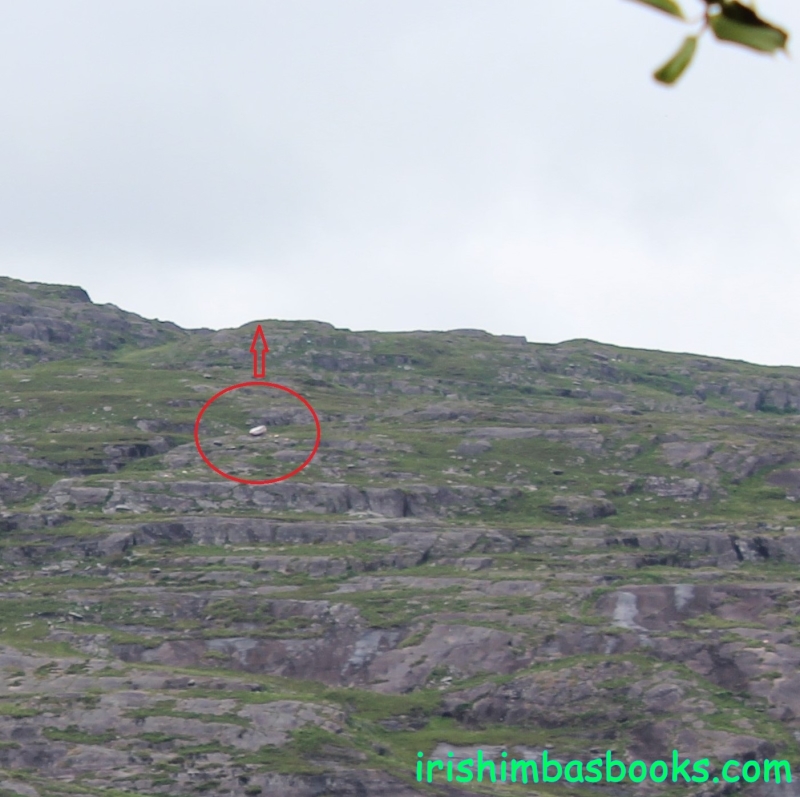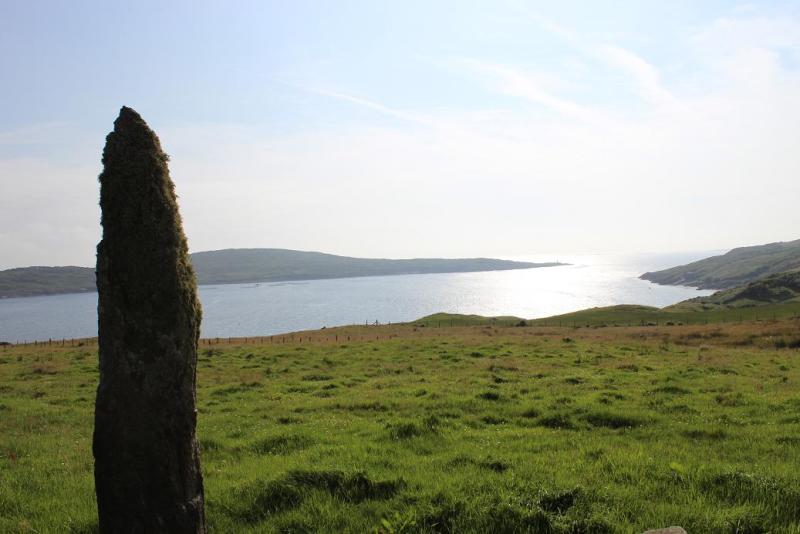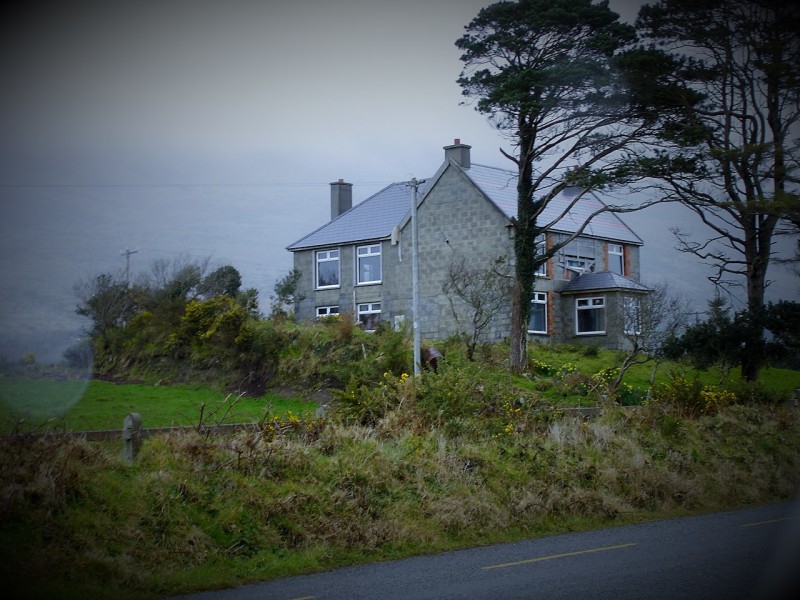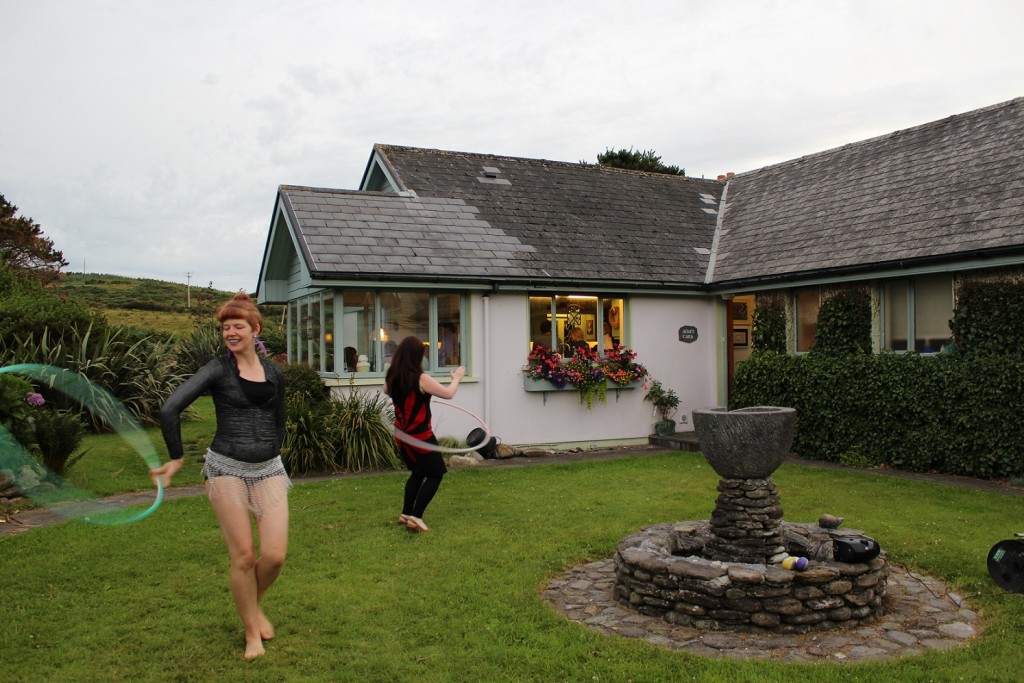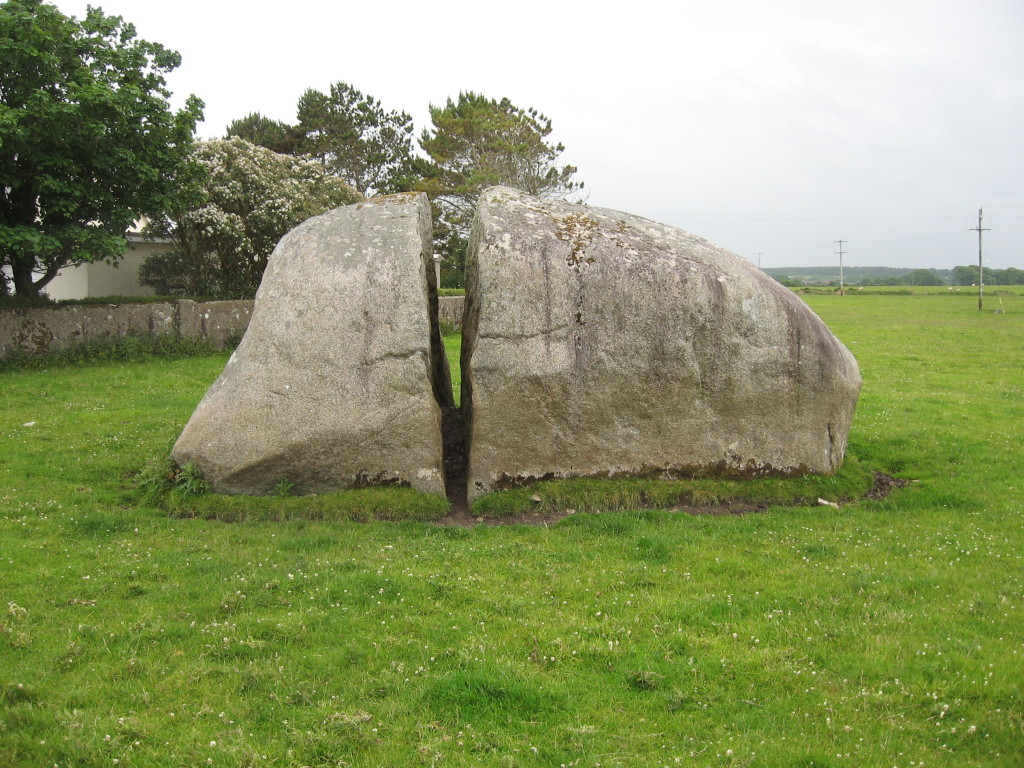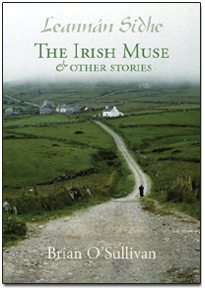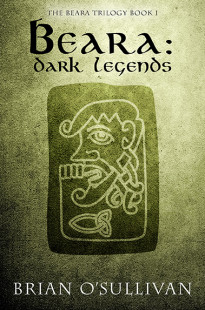

Something a little different today.
This is the prologue for the second book in my Fionn series (Fionn Traitor of Dun Baoiscne). Essentially it’s a stand-alone short story that introduces a number of characters who turn up in that book. The Book (Fionn: Traitor of Dún Baoiscne) is due for release in September this year.
The main group of characters in this particular story are based on a group of aosdána (individuals who were very skilled or respected) that Fionn encounters in the Macgnímartha Finn manuscript (The Boyhood Deeds of Fionn). The description of those characters in the original written manuscript was quite skeletal (most of the manuscripts were concise to the point of sketchiness to say the least) so I had a lot of fun playing around with it and filling in the gaps.
Hope you enjoy.
Prologue:
Sárán an Srón smelled it as he emerged from the rock-strewn pass of Bealach Cam. Drifting in on a gentle breeze from the south, it hung heavy in the air around the rocky entrance, striking his nostrils with a meaty intensity that stopped him in his tracks.
Stew!
His body reacted immediately, from instinct, even as his head struggled to register the presence of a scent so alien to the Great Wild. Slipping into the shelter of the nearest tree, a tall holly thick with green fern and scrub about its base, he crouched in silence, scrutinising the surrounding terrain, as he subconsciously worked through the individual elements beneath the smell.
Some kind of meat. Wild mushrooms and onions. Herbs … but not any he immediately recognised.
His mouth watered as he turned his eyes to the south but beyond the rocky entrance to the pass there was little enough to see, nothing but a rough landscape choked in places with oak and pine. Despite his habitual caution on encountering strangers so far Out in the Great Wild, Sárán allowed himself to relax. There was no evidence of any immediate threat, he was well concealed and the smell was not one to provoke any particular sense of dread. It was not, for example, the acrid stink of urine and shit, the tang of adrenalin or the iron-tinged stench of freshly spilled blood, all distinctly foul odours he’d encountered in the past and which still had the ability to raise the hairs on the back of his neck.
A long period of time passed without incident and Sárán slowly rose to his feet, although he made sure to remain within the shadow of the holly tree. A big, shaggy-haired man of twenty-seven years, he had a muscular frame and a range of scars on his left cheek and shoulder that marked him as an experienced warrior. In his right hand, he carried a javelin with an easy grip that, although loose, allowed him to raise and cast the weapon at speed should the need arise. At the small of his back, tucked into his belt, he felt the reassuring weight of a small – but deadly – hand-axe. Three additional javelins were strapped to a wicker basket that hung from his shoulders. Intended to transport the game he’d caught, the basket was dispiritingly empty.
He tugged at a greasy moustache as he stood in the shadows, closing his eyes to better appreciate the scent of stew. Raising his hand, he wiped a gob of saliva from his lips for it did smell delicious.
He found himself drooling happily at the prospect of food. It had been over five days since Sárán an Srón had left his wife and two boys at Seiscenn Uarbhaoil, a settlement far beyond the eastern swampland. Since then he’d eaten nothing but hard tack and water cress, drunk nothing but river water. Such hardships would have been borne more easily with company but, on this occasion, he was travelling alone. Both his usual hunting companions had remained behind at Seiscenn Uarbhaoil, preoccupied with more pressing matters of their own. Domhnall Dubh, a keen hunter, was awaiting the birth of his first child. When Sárán had called on him to propose the expedition he’d looked longingly at his own javelins but his wife, an irritable woman rendered all the more ill-tempered from the pregnancy, had threatened him with no sex if he dared to leave.
Dalbach, his other regular companion, was also unavailable due to a twisted ankle obtained during a romantic tryst with a local girl on the rocks at Carraig. Flaunting his leaping ability, the warrior had slipped on one of the moss-coated boulders and fallen from a substantial height. He’d been lucky not to break his leg or worse but that hadn’t stopped him moaning when Sárán informed him of his intention to go Out alone. He’d consoled his friend by promising to bring him back a haunch of venison. A big one.
Given his lack of success to date, that boast now looked overly optimistic.
Sárán scrutinised the southern forest once more, this time pleased to note a tendril of smoke rising up from the green canopy not too far to the south-east.
A campfire.
That would be the source of the smell. He stroked his nose, an overly large proboscis that had earned his nickname: Sárán an Srón – Sárán The Nose. Because of its size, many of the people at Seiscenn Uarbhaoil believed that he had sensory skills beyond that of ordinary mortals, that he could in fact ‘sniff out’ potential threats or dangers. Although he encouraged the stories because he enjoyed the attention, Sárán knew there was no truth in them. His sense of smell was no better, no worse, than most others at the settlement.
Staring at the distant plume of smoke, he frowned and scratched at the stubble on his jaw. He should be moving east, using the remaining sunlight to travel back in the direction of Seiscenn Uarbhaoil before he was obliged to set up camp for the night.
A dry camp.
With hard tack.
And cold water.
He sighed. Travelling alone as he was, he knew it would be wise to avoid strangers in the Great Wild, despite the fact that he was a fearsome warrior, a fact that several opponents – now dead – had discovered to their detriment.
His stomach grumbled in counter argument.
Sárán mulled over the possibilities. He could always, he reasoned, scout out the source of the odour. If the people responsible for it looked in any way dangerous, he could simply slip away and continue his journey.
He stared to the south. The smell of the stew was delectable.
And he was hungry.
***
Once Sárán had reached the trees, he worked his way through the forest with the ease of an experienced hunter, carefully avoiding sections of woody debris where branches or twigs might crack beneath his feet and alert others to his presence. As he advanced, the smell of stew grew perceptibly stronger. Soon he was able to make out the muffled sound of a distant conversation.
Dropping to his stomach, he wriggled forward, working his way towards a heavily vegetated mound coated with a thick copse of ash trees and heavy foliage. As far as he could tell, the voices were coming from somewhere on the other side and this particular route offered both the best concealment for his approach and his possible flight, if that were required.
It was almost dark when he reached the crest of the mound. Shuffling sideways to one of the wider tree trunks, he cautiously eased his head around it.
Ah!
The campsite was located in a little grotto, part of a long gully carved out of the ground by some ancient waterway and still strewn with smooth, green boulders. That section of the grotto closest to Sárán’s hiding place was relatively level and held a flattened rock that reached up to waist height. In the centre of this boulder was a deep depression full of rainwater from the previous night’s shower. Beside the rock, an impressive fire was crackling. Sárán’s eyes, however, were drawn less to the flicker of the flames than to the metal cauldron that dangled over it, the source of the delicious odour that now completely filled the air.
He licked his lips.
It was something of an effort to pull his eyes away to study the grotto’s human occupants. All six were seated at the fire, three each in a single line on separate logs, facing each other across the flames. They were a strange looking group. Of the trio looking in his direction, two were big men, bald but stocky. Because of their size, both would have drawn the eye even if it hadn’t been for the fact that they were completely identical. From the bald, sunburned skulls, right down to the rough dark robes they were wearing, each was a perfect copy of the other.
A Man Pair.
Sárán bit his lip. He had heard of man pairs before but he’d never actually seen one. Apparently, there’ been such a family at Seiscenn Uarbhaoil in the past. It had been before his time but people still spoke of the cursed mother who’d given birth to two sets of Man Pairs. On both occasions, the babies had died and, after the second pair, the woman had succumbed to fever. Grief-stricken, the father had wandered out into the Great Wild, never to be seen again.
The man seated to the left of the Man Pair, staring into the flames, was a skinny, old man. He too was bald but had countered the absence of hair on the back of his head with a thick growth of beard on his face that fell all the way to his waist.
Although he couldn’t see the faces of the threesome on the closest side of the fire as they had their backs to him, they too looked quite odd. One of them, a cowl pulled tight over his head, looked to be extremely short and was probably a child. Seated beside him, another, taller, individual seemed all the taller for the shortness of his companion. He too was completely bald. On the far right of this trio, the final figure appeared to be of a more normal height but rather rotund given the tightness of the material around his girth and frame.
Sárán nodded in approval at their choice of campsite. It was a good location, one that provided shelter from the wind and which was well hidden. He himself would have bypassed it, completely unaware of their presence, if it hadn’t been for the smell.
With this, his lips formed into a thin line. Despite their clever choice of location, this little group did not appear to have taken any other precautions. There was no-one standing guard and, as far as he could see, only two of them sported weapons – the two staffs carried by the Man Pair.
He gave a scornful shake of his head. Out in the Great Wild, death lurked behind every tree, lay waiting in every shadow for the unwary. Wolves and other predators prowled the land. If he had been a bandit, he could have snuck in and murdered them all without too much difficulty.
Reassured by this initial assessment and confident in his ability to deal with any threat that might arise from this particular group, Sárán got to his feet, stepped out of the trees and started walking down towards the fire.
Naturally, because they were facing in his direction, the Man Pair were the first to spot him. Startled, they quickly jumped to their feet, pulling their staffs up to hold them at the ready.
Sárán suppressed a smile. He could take both of them out easily with a javelin cast, leaving him with the hand axe to take care of the others.
And he was deadly with a hand-axe.
Seeing the Man Pair’s reaction, the others had also turned about and quickly stood up to examine the unexpected arrival. Only the old man with the beard took his time, stiffly rising to his feet to face the newcomer.
Sárán raised a placatory hand. ‘Hallo, Travellers,’ he called out. ‘I come in peace.’
The six strangers looked at one another. In the end, it was the bearded elder who finally stepped forward. He coughed and cleared his throat. ‘I see you, stranger. I am named Rogein.’
‘I see you, Old One. I am named Sárán ua Baoiscne.’
‘Welcome to our campsite, Sárán ua Baoiscne. We are preparing our meal. Would you care to eat with us? There is not much but we are happy to share.’
The old man’s voice sounded oddly brittle as though he’d done some damage to his throat in the past.
Sárán glanced at the steaming cauldron and nodded curtly, not trusting himself to successfully disguise his hunger for its contents. He advanced further into the little grotto and stood closer to the fire. ‘I will join you,’ he said, taking a seat on a small rock set back at an angle from the two logs on which the others were seated. As he sat, he made sure to keep his javelin close to hand. The men seemed harmless enough but he did not intend to take any chances. If necessary, the rock was sufficiently far from the group to allow him time to respond to any hostility.
And they will pay dearly if they tried.
If the old man noticed his caution, he showed no sign of it. Instead, he plunged a ladle into the little cauldron and scooped out a portion of stew which he slapped into a wooden bowl. He passed it to the big warrior who took it in one hand and held it under his nose. Briefly closing his eyes, he inhaled and savoured the aroma one last time before raising the bowl to his mouth and swallowing the contents whole.
‘Aaah!’
He smacked his lips with relish. The food had tasted every bit as good as it smelled. He glanced at his empty bowl then back towards the cauldron but Rogein seemed to miss the hint. The other members of the group, meanwhile, were regarding him quietly as though unsure what to make of him. After a moment, they all sat down again.
‘From where do you hail, Sárán ua Baoiscne?’ asked Rogein.
‘From Seiscenn Uarbhaoil. It is located to the east.’
‘You are far from home.’
‘I am on the hunt. Seiscenn Uarbhaoil is a growing settlement. The local forest has been hunted out.’ He glanced at the other members of the party. ‘Who are your friends?’
‘Forgive me,’ the old man answered. ‘I am a poor host.’ He pointed to the Man Pair. ‘These are Futh and Ruth. They are brothers but you may have already noticed the family resemblance.’
Sárán considered them uneasily. Seeing them sitting there side by side was like looking at a reflection in still waters. It seemed unnatural. Despite his disquiet, he smiled politely and nodded a greeting which the two men returned. Rogein, meanwhile, had moved on to the corpulent man to Sárán’s left. The warrior observed the fleshy face and pendulous jowls hanging below his jaw with silent censure. The folds of fat almost obscured a small tattoo of a spider on his right cheek.
‘And this is Regna of Mag Fea,’ said Rogein. ‘He is the man who prepared the repast which you are enjoying.’
Sárán stared at Regna’s stomach which protruded obscenely, pressing against the material of his robe like the belly of a pregnant woman. Although he’d never seen a man with so much useless bulk, he hid his distaste and nodded.
‘This,’ Rogein was indicating the extremely tall figure with the cowl, ‘is Temle’. Temle lowered his cowl to reveal another bald head, a muted pair of eyes and a strikingly bulbous nose. Like Regna of Mag Fea, he too had a spider tattooed on his left cheek. Sárán glanced at the Man Pair and realised that they too had the spider marking although he’d missed it in the flickering shadows thrown up by the fire.
‘And finally,’ said the old man, gesturing towards the smallest figure at the far end of the log. ‘This one is named Olpe.’
Sárán leaned forward in order to see the little shape more clearly.
‘Hallo, little one.’
The figure turned to look at him but beneath the shadowed cowl it was impossible to tell if it was a boy or a girl.
The big warrior grinned. ‘I have two boys about your age.’
With this a small pair of hands appeared from out of the sleeves and reached up to pull the cowl back. To his horror, Sárán found himself staring at the wizened face of a very old man. Like the others, he was completely bald.
Regna of Mag Fea roared with laughter. ‘I very much doubt that!’
Sárán bristled, angered at being embarrassed in this manner. ‘Who are you?’ he demanded. ‘Why does such an odd group travel Out in the Great Wild?’
Rogein quickly made a mollifying gesture. ‘Forgive Olpe’s little joke, Sárán ua Baoiscne. We are like you. Simple travellers.’
‘I am not a traveller. I am a hunter.’
‘Of course, of course.’ He nodded. ‘My comrades and I …’ He paused. ‘We too are hunters of a sort. Hunters of knowledge.’
‘Hunters of truth.’ Sárán could not hide the scepticism in his voice.
‘Indeed. The stars reveal their secrets to us and we hunt their associated knowledge.’
Sárán continued to look at him blankly.
‘If you can read them, the stars reveal many secrets. Some years past, for example, the stars told us that a great leader, a most powerful figure, had been born. Since then we have been travelling the land to seek him out.’ He made a shrugging gesture. ‘The problem is that although the stars tell us of such events, they do not tell us where they occur. That is why we travel now, seeking the one who was born.’
‘Why would you seek out a baby?’
‘To pay homage to him.’
Sárán struggled to keep the incredulity from his voice. ‘To pay homage to a baby?’
‘Yes.’
‘How would you pay homage to a mewling infant?’
‘Well, we are not wealthy men but we have gathered gifts of significance.’
‘Oh?’ asked Sárán with renewed interest.
‘Temle.’ Rogein looked to the tall man. ‘Show our guest.’
With a sigh, the tall man reached down to open a little backpack resting on the log alongside him. Undoing the upper cord that sealed it, he withdrew three large clay pots and laid them on the ground before him. Removing the sealed lid of the first container, he tilted it forwards so that Sárán could see its contents: a large mixture of some papery bark, paired leaves, and flowers with white petals and a yellow or red centre.’
‘Flowers. Very nice. I’m sure the babe’s mother will appreciate that.’
‘These are no ordinary flowers, Sárán of Seiscenn Uarbhaoil. They come from the lands far to the East and produce an alluring fragrance.’
Sárán ignored him, peering at the other containers. ‘What else do you have?’
Temle opened the second pot. This was full to the brim with a powdery, reddish resin. Sárán leaned forward to examine it more closely only to draw back in alarm as he caught a whiff of the overpowering scent it gave off.
‘This is another fragrance from the Myrrh trees. Again, they are found far to the East. And finally … ’
The last clay pot was opened. Sárán stared. It seemed to contain a large collection of shiny metal disks.’
He looked at Rogein with a quizzical expression.
‘They call this gold,’ explained the old man. ‘It is of great worth.’
‘Of course, of course.’ Despite his disappointment, Sárán supressed a great desire to roll his eyes. He had been hoping for more food of the quality of the stew, some weapons or even jewellery he could have appropriated to bring back to his wife in compensation for the lack of food. He tried not to laugh as he imagined the expression of the babe’s family when this group arrived offering homage and pots of useless junk. The thought prompted his next question.
‘You say you have been seeking this child for some time.’
‘Yes. For some years. Although we know the child was born, we do not know where. Recently, we learned that he was to be found in a settlement said to be led by a woman.’
‘A woman!’ Sárán scoffed. ‘What settlement would let a woman lead them?’
‘It’s true,’ the old man conceded. ‘It is difficult to believe but we were also told that this woman was a Gifted One and has received training as a bandraoi – a female druid. Have you heard of such a place?’
The warrior thought about that. ‘I know of no such settlement in these parts but I have heard tales of a place far to the west, in the Sliabh Bládhma region. My sister’s man once told me that it has links to Clann Baoiscne but I do not know what those links are.’
Rogein looked eagerly towards his companions who were now all whispering excitedly together. ‘You see, brothers! Our informant did not fail us.’ He quietened then as though absorbed in deep thought but after a moment he returned his attention to the warrior.
‘You have our gratitude, Sárán. Can we offer you more stew as an expression of our appreciation?’
Sárán looked guiltily at the little cauldron. There did not seem to be enough for everyone but the flavours were still raging on his tongue, demanding more.’
‘Very well.’ He did his best to sound as though he was doing them a kindness accepting the reward that was his due for helping them in their bizarre search.
Rogein ladled another measure into his bowl and he immediately lapped it up, fearful that he might have to share. When he was finished, he wiped the leather sleeve of his tunic across his lips. ‘Do not take this the wrong way, Rogein. It is not my intent to insult your hospitality but you are foolish to wander about in the Great Wild without protection. These lands can be very dangerous.’
As he spoke, he eased his javelin onto his knees and slowly, casually, allowed his left hand to drift behind his back to where his hand-axe waited. It was ungrateful of him, he knew, but he had come to the decision to rob this little company. They could keep their smelly pots but he intended to leave the camp with that cauldron. If they did not attempt to stop him, they did not need to die.
‘I have a weapon,’ said Regna of Mag Fea. The fat man held up a short boning knife that, although sharp, would have done little more than cause a gash in a real fight. ‘And both Futh and Ruth have their stout staves.’
Sárán bit his tongue. These men were fools. Simple-minded idiots whose bones would inevitably litter the floor of the Great Wild’s forests.
‘You would not frighten a sandfly with such a knife. Staves are useful up close but they are no match for a sword or a battle axe. And they offer no defence against spear or javelin. You would require real weapons, Rogein.’ He tapped his own javelin to emphasise his point. ‘Something to strike fear into those who would attack you.’
Rogein looked at him in surprise. ‘Why would anyone attack us? Apart from our gifts – which we keep concealed – we have nothing of value, nothing that anyone would want.’
Sárán glanced guiltily at the cauldron from the corner of his eye.
‘You should fear travellers in the night,’ the big warrior said. ‘Death comes easily in the Great Wild.’
‘We are six,’ insisted Rogein. ‘How can you claim to advise us when you are but a single man?’
‘Because I am a warrior from Seiscenn Uarbhaoil. My blades are stained with the blood of many enemies. I am not one to be waylaid or interfered with. I am strong. I kill easily, without passion. You cannot compare us.’
There was a dull thump.
Sárán looked down to find that the wooden bowl had slipped from his fingers, hitting the rocky ground. He started to laugh and was about to make a joke of it but when he attempted to speak only a barely audible croak came out of his mouth.
Surprised, he raised his fingers to touch his lips and tried again. Once again, there was no sound but a croak.
Rogein was looking at him with mild curiosity. ‘What is it, Sárán ua Baoiscne? Is the stew not to your liking?’
Sárán pointed urgently at his mouth and grunted.
‘You cannot speak?’ Rogein leaned forward and peered closely at his guest. Annoyed, Sárán opened his mouth wide, offering the old man a better view in the hope that he could see what was wrong.
After a moment, the old man pulled back and tugged thoughtfully on his long beard. ‘I believe I know the cause. It will be the white root, an ingredient Regna of Mag Fea adds to his stews. It enhances the flavour, magnifies both the taste and the odour. Manipulation of scent is one of the many secret skills he learned in his travels through the Eastern Lands.’
Sárán glanced at the fat man who returned it with a smug smile then chuckled loudly. ‘On occasion, it has the interesting effect of rendering an eater silent. A perfect antidote for boastful guests.’
Furious, the warrior made to reach for the javelin lying across his knees but found that his hand did not move. Alarmed, he tried to stand but found that his legs were not responding either.
‘Ah, yes.’ Regna of Mag Fea was stroking the smooth skin of his meaty jowls as he observed Sárán’s efforts. He got to his feet, waddled towards the warrior and squatted down before him. ‘That is another side effect. The more common one in fact. The white root causes a great lassitude of the limbs. It makes a person still and unmoving.’
He smiled at the growing alarm in Sárán‘s eyes. ‘You are a man of sage advice, Sárán of Seiscenn Uarbhaoil. One should not travel without care within the Great Wild. It is a dangerous place. And it is a shame you are unable to follow your own counsel.’
Pulling the javelin from the warrior’s knees, he tossed the weapon aside.
‘I am glad you enjoyed our cooking. You were aware there was not much food but that did not stop you. Still, it can be said you enjoyed your last meal. The last visitor to our campfire enjoyed his meal just as you enjoyed him.
He nodded at the horrified comprehension in the frozen man’s eyes.
‘And now you see the truth of it. Yes, that is how we travel so light. When we are low on supplies we set our web at sites such as this valley entrance where travellers are, eventually, bound to pass.’
He pulled out the little boning knife and held it up in front of the stricken man.
‘But you will forgive me, I’m sure. The night grows late and my companions grow hungry.’
